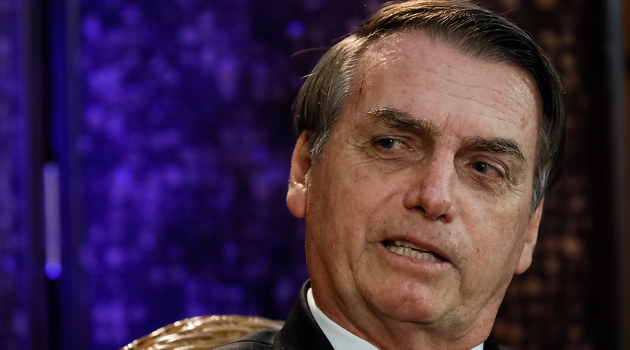According to the most-recent edition of Economic Freedom of the World, Brazil is only ranked #120, which is lower  than nations such as Greece, Haiti, and China.
than nations such as Greece, Haiti, and China.
Brazil gets a horrible grade on regulation, and it’s also in the bottom half of all nations when looking at fiscal policy, quality of governance, and trade.
But things may be about to change. Voters elected a president last year, Jair Bolsonaro, who is best known for populist rhetoric, but he also expresses support for market-friendly reforms.
And even though he’s sometimes referred to as the “Brazilian Trump,” President Bolsonaro seems to have a much better understanding of trade than his American counterpart.
At least if this report from the Wall Street Journal is any indication.
President Jair Bolsonaro ’s administration is opening up one of the world’s most closed big economies, slashing import tariffs on more than 2,300 products and exposing local industries long accustomed to protectionism to the challenges of free trade. With little fanfare, the conservative government has since taking office in January
eased the entry of ultrasonic scalpels, cancer drugs, heavy machinery and more, in some cases with tariffs reduced to zero from as much as 20%. The tariff cuts…reflect a significant shift in the world’s eighth-largest economy, where duties were twice as high as in Mexico, China and the European Union last year. The new opening is a central feature in Economy Minister Paulo Guedes ’s plans to make the country of 210 million more competitive, part of an effort to rekindle a moribund economy historically shielded from foreign competition and bogged down by bureaucracy. …“Brazil’s model of protectionism has failed,” Deputy Economy Minister for Trade Marcos Troyjo, one of Brazil’s chief trade negotiators, said in an interview. “It’s been 40 years without sustainable economic growth.”
Here are some excerpts about how Brazil has been hurt by trade barriers.
The problems created by protectionism are evident throughout Brazil’s economy. When Mauá University outside São Paulo imported American equipment last year that it couldn’t find in Brazil to upgrade its physics lab, for example, import tariffs doubled the price tag to $70,000, said Francisco Olivieri, a business professor and head of Mauá’s technology department. …Protectionism hurts businesses that need to import supplies or parts and face high tariffs and bureaucracy to do so, which pushes them away from global supply chains. Red tape related to tariffs at Brazilian ports mean imported supplies can take weeks to reach buyers, causing production delays. Fifty-five percent of foreign products require the importing companies to obtain permits from as many as six different government agencies, according to a recent study by the National Confederation of Industry, or CNI, a trade group that represents Brazilian factories. Importers are subject to steep fines if they fail to request a permit, but it is often difficult to determine from which agencies they must seek approval.
In other words, Brazilian companies are hit by a double-whammy of trade barriers and red tape.
This is why liberalization is so important.
Incidentally, the EFW data only captures what happened up through 2017.
And since Brazil (#87) isn’t that far behind the United States (#55) in the trade rankings, I won’t be overly surprised in a few years if Brazil jumps the United States given the combination of Bolsonaro’s good policies and Trump’s bad policies.
P.S. Brazil is also in the process of curtailing pensions and already has adopted a constitutional spending cap.
P.P.S. President Bolsonaro is quite good on gun rights.
P.P.P.S. A few years ago, I fretted Brazil has passed a tipping point of dependency. I’m somewhat hopeful that assessment was too pessimistic.
———
Image credit: Palácio do Planalto | CC BY 2.0.


